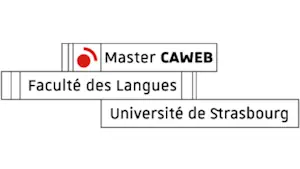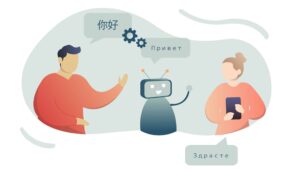How to choose the right CMS for your web project in 2024?

In a previous article, we discussed the question of How to make your own website? Choosing the right CMS (Content Management System) is crucial to the success of your web project. What is a CMS ? A CMS is a software platform that allows you to create, manage and organise the content of a website without requiring in-depth technical programming skills. In this article, we’ll look at how to choose the right CMS for your web project in 2024!
1. The most popular CMSs in 2024
In 2024, WordPress is the most widely used CMS in the world, powering more than a third of all websites on the Internet. Its popularity is due to its ease of use, flexibility, large community of developers and vast library of themes and plugins. However, other CMSs such as Shopify, Joomla, Drupal and PrestaShop also have their own loyal user bases and are widely used around the world in 2024.
While WordPress and Joomla are suitable for a wide variety of web projects, from personal blogs to corporate sites, Drupal is often used for more complex projects ranging from corporate sites to community portals and web applications. Shopify and PrestaShop, meanwhile, are dedicated to e-commerce sites. Depending on your web project, one or other of these CMSs will be more or less suitable! To help you make the best choice, here are a few things to consider.
2. Define your needs and objectives to choose the right CMS for your web project
Before making your choice, it is essential to clearly define your needs and objectives. Ask yourself the following questions:
- What type of website do you want to create (blog, e-commerce site, portfolio, etc.)?
- What functionalities are essential for your project (payment system, blog, forum, etc.)?
- Do you need a multilingual solution to reach an international audience?
3. Evaluating the functionality of each CMS
Each CMS offers a unique set of features. Some specialise in creating blogs, such as WordPress, while others are designed for e-commerce sites or large information portals.
Here are some key features to consider:
- Flexibility and extensibility: A good CMS should allow you to customise your site to suit your specific needs and grow with your business.
- Ease of use: The learning curve for a CMS should be reasonable for you and your team.
- Security: Security is paramount. Make sure the CMS offers regular updates and robust security protocols.
- Multilingual support: If you are targeting an international audience, opt for a CMS that can handle several languages and localisations.
You can consult official CMS sites, read user reviews, examine market studies and reports on CMS trends, and test demo versions or free trials of the various CMSs to assess their functionality and performance.
4. Defining the budget for your website creation project
Cost is a key factor in choosing a CMS. Some CMS are free and open source, such as WordPress and Joomla, while others, such as Shopify, charge subscription or licence fees. Also consider indirect costs such as hosting, premium extensions and development costs.
5. Community and support
An active community and good support are essential for resolving problems quickly and exchanging ideas with other users. WordPress, with its large community, offers a wealth of resources, plugins and themes available, making it a popular choice for many users.
6. How do you choose the right CMS for your web project? Test it out!
Before making a final decision, test several CMS using demo versions or free trials. This will allow you to assess the user-friendliness, functionality and flexibility of each system.
Choosing the right CMS for your web project in 2024 is a crucial decision that will have a significant impact on the success of your site. By clearly defining your needs, evaluating features, costs, community and testing several options, you’ll be better equipped to make an informed decision. Whether you opt for WordPress, Shopify, Joomla or any other CMS, make sure it perfectly meets your specific needs and objectives to ensure the success of your web project.
Article written by Mélisande Juric
Other articles
-

Discover our online Master’s CAWEB Program in digital communication
-

Best WordPress Plug-ins of 2018
-

How Machine Translation is once again reshaping the translation landscape
-

Get the quality you need for your localization projects with a robust quality management system
-

The Hidden Benefits of Speech-to-text Technology for Translation


